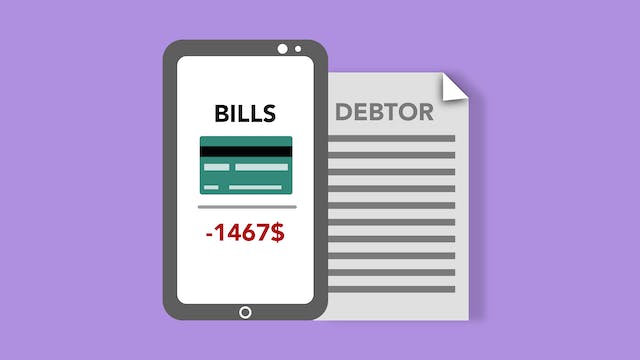In today’s fast-paced business world, effectively managing cash flow is vital for the survival and growth of any company. Late payments from customers can have an impact on a company’s ability to pay its bills, creating a financial strain in the chain reaction. That’s where invoice debtor finance comes in. This smart approach to credit risk management allows companies to mitigate the effects of delayed payments and maintain a healthy cash flow. In this article, we will explore how invoice debtor finance works and why it proves to be an invaluable tool for credit risk mitigation.

Understanding Invoice Debtor Finance
Invoice debtor finance, also referred to as accounts financing or factoring, is a solution that enables businesses to access funds tied up in unpaid invoices before their due dates. Instead of waiting for customers to pay their invoices on time, companies can sell these invoices to a third-party financier known as a “factor.” The factor then advances around 80 to 90% of the value to the company, providing them with immediate access to essential working capital.
Benefits of Invoice Debtor Finance
Some of the key benefits of the debtor finance facility include the following:
1. Uninterrupted Cash Flow: By receiving payment for invoices, businesses have more money available to cover operational expenses like paying suppliers or investing in growth opportunities.
2. Credit Risk Mitigation: Another advantage is the mitigation of credit risk. With invoice debtor finance, the responsibility for collecting payment from customers shifts to the factor, relieving businesses from concerns about payments or defaulting customers affecting their cash flow.
3. Flexibility: Invoice debtor finance also offers flexibility. Companies can choose which invoices they want to factor in and when they need funds, allowing them to align their financing needs with their requirements and minimising liquidity gaps.
4. Efficiency: Moreover, outsourcing the invoice collection process to a factor enhances efficiency for businesses. They can focus on core activities such as sales and product development instead of spending time chasing invoices.
5. Growth Opportunities: Access to working capital through invoice debtor finance opens up several growth opportunities for companies. Whether it’s expanding operations, investing in technologies, or hiring staff, having a strong cash flow can accelerate business growth.
Choosing the Right Factor
When it comes to selecting a factor for invoice debtor finance, there are a number of considerations to keep in mind:
1. Industry Expertise: It’s important to find a factor that specialises in your industry. They should also have an understanding of the challenges and payment patterns that your sector faces. This expertise is crucial for credit risk management.
2. Funding Rates and Terms: Take the time to compare the funding rates and terms offered by factors. Look at factors such as how much they advance against an invoice (known as the advance rate), any fees they charge (discount fees), and whether they offer recourse or non-recourse options (which determine whether you’re responsible for unpaid invoices).
3. Reputation and Reliability: Before making a decision, do some research on the factors. Read reviews, testimonials, and case studies from their existing clients to make sure they have an excellent track record of providing service.
4. Customer Service: Excellent customer service is paramount when partnering with a factor for invoice debtor finance. You’ll want to work with someone who’s responsive, supportive, and ready to help resolve any issues that may arise during the financing process.
Conclusion
Invoice debtor finance provides businesses with a solution for managing credit risk while improving cash flow management. By partnering with a factor, companies can access working capital without having to worry about late payments or customers defaulting on their invoices, which can impact their financial stability. This adaptable financial solution offers the resources needed to support business expansion while improving efficiency by outsourcing the collection of invoices. Given its advantages, it is evident why invoice debtor finance has emerged as a strategy for mitigating credit risks in today’s fiercely competitive business landscape.



